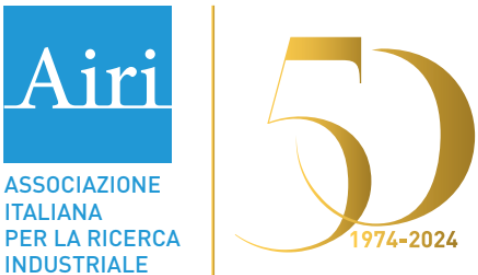28 giugno 2021, 11.30-13.00
 Le tecnologie digitali alimentano la tendenza globale di includere oggetti sempre più connessi, tanto nelle catene di produzione così come nella vita quotidiana di ciascuno di noi. Questa tendenza spinge lo sviluppo e l’integrazione dei sistemi elettronici, sviluppo che rischia però di essere limitato dalla necessità di dissipare quantità crescenti di calore, per mantenere le temperature entro i limiti di operatività dei dispositivi.
Le tecnologie digitali alimentano la tendenza globale di includere oggetti sempre più connessi, tanto nelle catene di produzione così come nella vita quotidiana di ciascuno di noi. Questa tendenza spinge lo sviluppo e l’integrazione dei sistemi elettronici, sviluppo che rischia però di essere limitato dalla necessità di dissipare quantità crescenti di calore, per mantenere le temperature entro i limiti di operatività dei dispositivi.
La comprensione dei meccanismi di scambio di calore e la capacità di anticipare il comportamento dei sistemi di gestione termica, dalle prime fasi di ricerca, alla progettazione fino all’ingegnerizzazione risulta un fattore abilitante per gestire la complessità dei fenomeni in gioco e supportare una più efficace integrazione dei dispositivi di nuova generazione.
Lo sviluppo di approcci numerici è ormai parte delle attività di ricerca e sviluppo, che si tratti di codici specifici per la ricerca di base e applicata, o dello sviluppo e customizzazione di software dedicati alla progettazione industriale, di processo o prodotto.
Proprio gli approcci numerici permettono una maggiore comprensione dello scambio termico nei sistemi bifase, su cui si basano nuove tecnologie per la dissipazione del calore in sistemi ad alta densità di energia (in alternativa ai sistemi ad aria o a liquido), che puntano ad aumentare l’efficienza della gestione termica grazie al calore latente associato alla transizione di fase liquido-vapore.
Le tecnologie avanzate per la gestione termica in sistemi ad alta densità di potenza trovano applicazione in molteplici settori, quali semiconduttori, automotive e aeronautica, industria energetica, biomedicale, telecomunicazioni e settore spaziale.
Durante il webinar saranno illustrati e discussi alcuni tra i più recenti risultati della ricerca, delle tecnologie e degli strumenti modellistici che potranno supportare lo sviluppo di nuovi dispositivi.
Agenda
Opening remarks: Andrea Porcari, Airi
- Marco Marengo, Advanced Engineering Centre (AEC), University of Brighton
Two-phase heat pipe technologies for thermal management of power electronics - Francesco Magaletti, Project Boil-Mode-On, University of Brighton
Advanced modeling and numerical simulations for boiling heat transfer - Daniele Panfiglio, Comsol
Managing heat transfer through numerical simulation - Giuseppe Zummo, ENEA
Two-Phase Pumped Loop for Thermal Management of High Power Electronics - Anze Sitar, FBK
Surface structuring and advanced working fluids for boiling heat transfer enhancements
Round Table: Needs, approahces and perspectives for the exploitation of numerical modeling in design and applied research contexts.
Chair: Daniela Pimponi, Airi
Informazioni:
Il webinar si svolgerà in lingua inglese.
Partecipazione: 28 giugno 2021, ore 11.30-13.00, piattaforma Go To Meeting. In tempo utile, i registrati riceveranno al proprio indirizzo e-mail le istruzioni dettagliate per accedere al webinar.
Registrazione: Partecipazione gratuita previa registrazione.
Chiusura delle registrazioni il 24 giugno 2021.
Contatti: Segreteria Airi – info@airi.it, www.airi.it
………………….
Airi Webinar
Models and technologies for thermal management of advanced devices with applications to digital technologies, semiconductors, energy and capital goods
28th June 2021, 11.30-13.00
Digital technologies are driving the global trend of introducing more and more connected devices along the production chains as well as in people’s everyday life. This trend supports the development and inclusion of integrated electronic systems. However, the need to control the device temperature within its working range, by dissipating large quantities of heat, limits the proper development of these systems.
The comprehension of heat transfer mechanisms and the possibility to predict the behaviour of thermal management systems (since the very early stages of R&D and throughout the design and engineering process) are both enabling factors to manage the complexity of the involved phenomena and to support an efficient integration of new generation devices.
The development of numerical approaches has gained a central role in R&D activities, whether through specific codes aimed for fundamental or applied research, or through the development and customization of softwares intended for industrial (process or product) design.
These numerical approaches allow for a better comprehension of the heat transfer phenomena, particularly in two-phase systems (representing an alternative to air or liquid systems), which are inspiring new technologies for heat dissipation in high power density systems. These two-phase systems aim to increase thermal management efficiency thanks to the latent heat associated with the liquid-vapour phase transition.
Advanced technologies for thermal management are crucial for many sectors, such as semiconductors, automotive, aeronautical, energy, biomedical, telecommunications and space industries.
During the webinar, some of the most recent results from research and innovation activities in this field will be presented and discussed, focusing on modeling approaches and technologies that could support the development of new devices.
Agenda
Opening remarks: Andrea Porcari, Airi
- Marco Marengo, University of Brighton
Two-phase heat pipe technologies for thermal management of power electronics - Francesco Magaletti, University of Brighton
Advanced modeling and numerical simulations for boiling heat transfer - Daniele Panfiglio, Comsol
Managing heat transfer through numerical simulation - Giuseppe Zummo, ENEA
Two-Phase Pumped Loop for Thermal Management of High Power Electronics - Anze Sitar, FBK
Surface structuring and advanced working fluids for boiling heat transfer enhancements
Round Table: Needs, approaches, and perspectives to exploit numerical modeling in the design and applied research contexts.
Chair: Daniela Pimponi, Airi
Info
Participation: 28th June, 2021, h.11.30-13.00, Go To Meeting platform. Instructions to connect will be sent to all registered participants by email.
Registration: Participation is free after registration at the link
Registration closes: 24th june 2021
Contacts: Segreteria Airi – info@airi.it, www.airi.it



